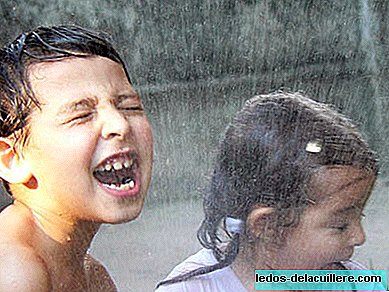
The Waldorf pedagogy It was founded in 1919 by Rudolf Steiner and since then there are hundreds of schools that follow this methodology worldwide. Christopher Clouder is the president of the Waldorf School Federation and was interviewed two years ago at La Vanguardia.
The fundamental idea is that education must respect and support the physiological, psychic and spiritual development of the child. To achieve a good intellectual development there must be a solid emotional base.
The teaching is divided into septenios (seven year cycles), the first being between 0 and 6 years. Clouder comments that at this stage learning comes through the game. The objectives are focused on stimulating the senses and imagination and strengthening the will of each child.
Children need to feel protected and secure in order to develop their virtues: "When they know that the adults around them respect those talents, they can make them flourish"comments. The most important thing in these ages is that children are children: "There is a lot of time to be an adult and too little to be a child". This means that they play and learn with the movement, leaving aside the typical disposition of the traditional schools in which children learn sitting in a chair.
If at this stage the game prevails over all things, many parents and readers will ask themselves: "And when do they study?" The answer is that they do it from the second september, that is, in the first period they are not taught to read or write although that does not mean that this facet is neglected: "Through the game they are given the language skills so that in the next stage they quickly learn to read and write. The fundamental thing is that they perceive that learning is a joyful experience, so they move on to the second stage Eager to learn."
From the Waldorf pedagogy they try to allow children to have challenges in education from an integral perspective. So important is what is learned as how it is learned and that is why they attach special importance to personal growth and the establishment of a good degree of empathy.
For children to be happy and for a climate of cooperation and group sentiment formed by people of equal value to be established each "Child must compete with himself, not with his peers, that emotional education gives them security and capacity for collaboration."

Clouder also speaks of a pressing problem in today's childhood such as hyperactivity and / or attention deficit and blames him for "We turn children into consumers. Consumption, by definition, is never satisfied, there is always something better, and children are very vulnerable to that." now that they have "Too many obligations. The tension of measuring oneself with others and the ones they endure for a suspense is a drama in their life."
Referring to the very important role of parents in the education of our children, he comments that "Being a father today is difficult, because the extension of the traditional family has been lost and with it the diversity of models. They have also lost contact with nature, which is very nutritious for them. My advice would be for parents to be aware that your children need nature and time, because the word they hear most is run. Einstein said that if you want your son to be wise, tell him stories; and if you want him to be wiser yet, tell him more stories. Tell the children stories every day, stories and more fairy tales. "
Our son starts school in 8 months and we are involved in the difficult choice of a school that we like for him. In full concern I think: "Why won't there be a school like that where I live?"
The work philosophy of the Waldorf schools closely resembles that used in Finland, which we already talked about in Babies and more. They do not learn to read or write until they are seven years old and if a child has a hard time they can begin to do so even at eight. It may be paradoxical, but the Finns are the ones with the best academic results according to the Pisa report (Spain is in 35th place of the 57 participating countries).
The goal of both is for children to grow up in the early years by laying a solid emotional foundation that will grow love for oneself and others.
Later, once they realize their importance as individuals and as individual beings (self-esteem and self-confidence) they begin to learn, in this way they begin to read when they are able to understand what they read and more importantly, when they have interest and curiosity of doing it.












